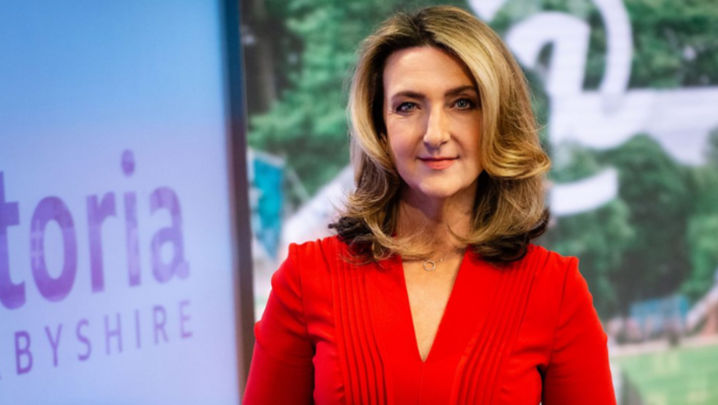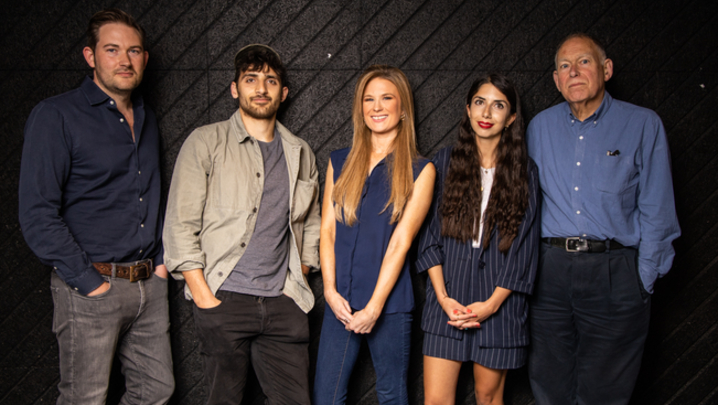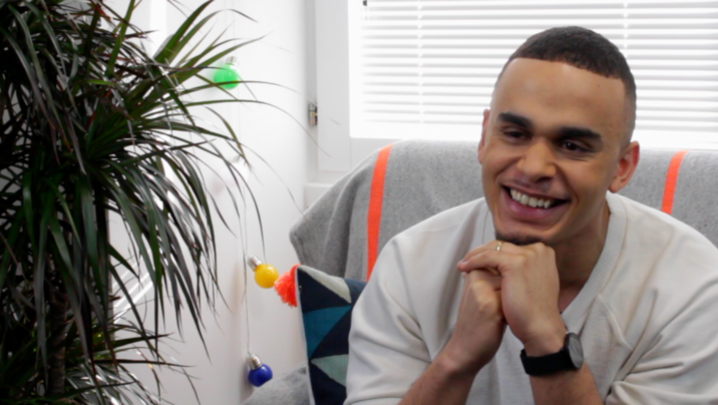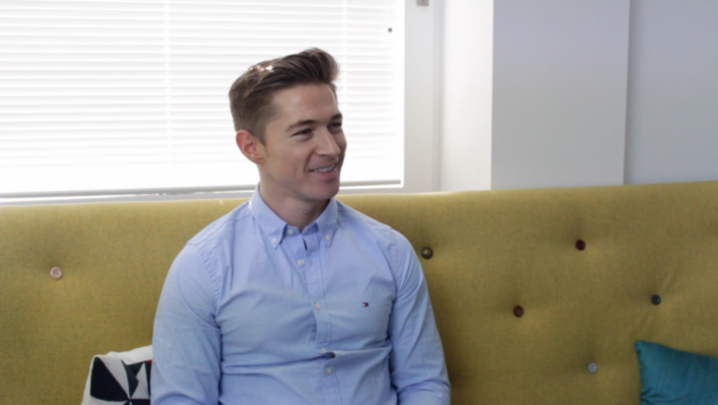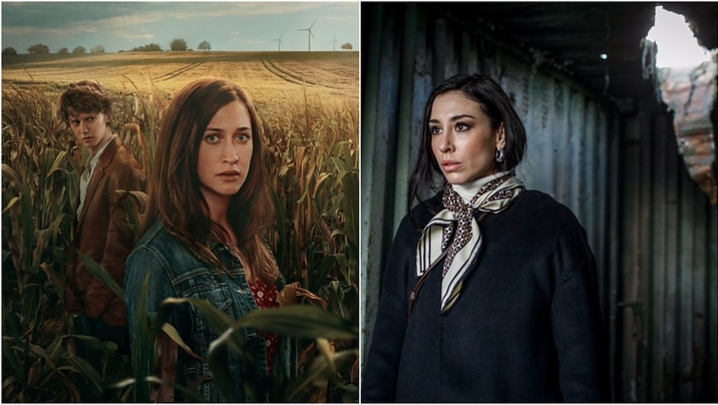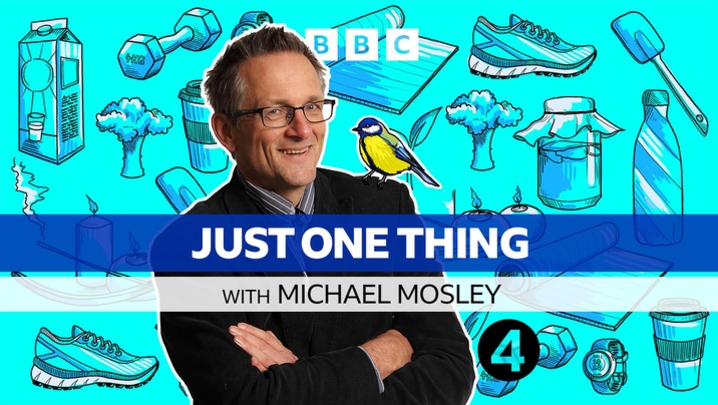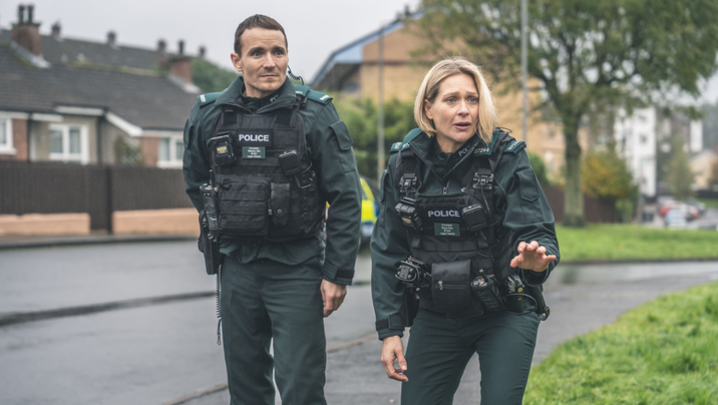Backstage at the RTS Television Journalism Awards, Victoria Derbyshire has just picked up first award of the night.
“I am so proud of our team, and of our programme which is not even three years old. As our HR department says: in development,” she said as she accepted the award, the first of two she’ll win that evening.
She felt nervous heading up onto the stage, she says, which from the famously forthright journalist seems surprising. She’s fronted thousands of hours of live TV, publicly documented her own battle with breast cancer, and overseen an investigation into child sexual abuse that has seen more people brought to justice in the UK than the Catholic Church child abuse scandal. Her nerves are unexpected. This is what she does every day.
‘But not like this!’ she insists, gesturing through the wall to the amassed crowd of television journalists gathered to celebrate excellence from the past 12 months. “We’re radio people.”
The ‘we’ she refers to is her editor, Louisa Compton and herself, who after 10 years working together at BBC 5Live decided to uproot their show and put it on television. Less than three years later and the result, the Victoria Derbyshire Programme, is Bafta and RTS Award-winning, produces stories which are regularly among the most read on the BBC News website, and are picked up across the across the news media. It has, she says, “been blood, sweat and tears – and a load of laughs.”
Didn’t bag the Young Talent award but absolutely loved the #RTSAwards last night. Love my team @VictoriaLIVE and am flattered for the recognition at this formative stage in my career #onwardsandupwards #bestnight #bestteam pic.twitter.com/RlaEZcCIgj
— Ashley John-Baptiste (@AshleyJBaptiste) March 1, 2018
The success of the show comes down to its uniqueness, the pair believe. They fought to make the show because they identified an underexplored area in TV news. “Our reason for being was to cover the kind of stories that no one else was covering,” explains Compton. “We’re trying to change the landscape...”
“We’re reaching underserved audiences,” Derbyshire says of their young, diverse, working class audience. “That’s a big deal for the broadcast media. It super-serves the middle classes. We do something– deliberately – that differentiates us.”
Yet it is their approach to storytelling sets them apart, not their audience. Compton explains: “We never assume knowledge. I think we're quite proud of the fact that we always want to really explain stories clearly, and kind of tell the audience not why they should care, but to give them a reason to care about stories like that.”
When I meet the pair, it is 11am the day before the awards and they have just come off air. The day’s show was a good one they feel. The running order changed constantly, three of their guests were arranged and contacted while the show was on air and one of the guests was patched in on FaceTime from the back of a cab. Business as usual, they suggest. That’s just how television gets made.
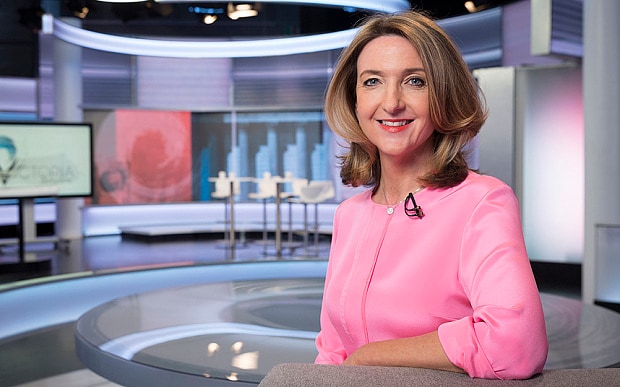
However radio is in their blood. When one guest arrives late in the middle of the segment, Victoria called for a new chair and invited her to join them.
“That’s so radio,” she laughs. “We love it. Someone’s late, so what? Just walk in! Why can’t the audience see that? Are they going to be horrified? Is it going to be unacceptable?”
“Sometimes you can make things more complicated than they need to be.”
Compton adds, “when we launched we talked about… breaking down the conventions and grammar of TV.”
An incident a couple of years ago drew similar attention. During a group interview, one child looked uncomfortable.
“He said, ‘oh, I need the toilet’,” recalls Compton. “Victoria, in the middle of the discussion got up, took him out… and said to the parents, ‘carry on chatting amongst yourselves…’”
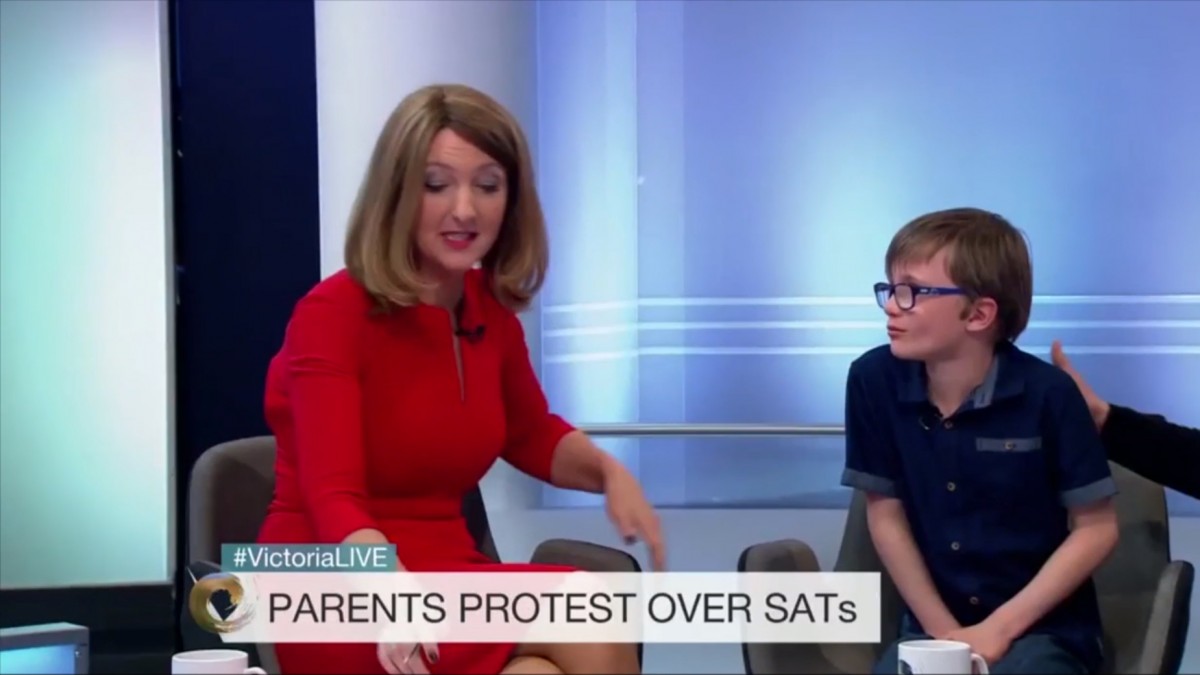
(Credit: Victoria Derbyshire Programme)
“And they did!” Derbyshire chips in. “It was all fine.”
It is the unpredictability of the live show that the pair enjoy, however unpredictability often doesn’t work on TV.
During a pilot for the show, Derbyshire recalls getting frustrated at a floor manager insisting that she follow a specific route around the studio. “Why can’t I just go there?” she asked. “It’s no big deal to go from A to B. Why can’t we just do something spontaneous like we would do in radio all the time!”
The Floor Manager’s earnest reply, she laughs, was “We have to rehearse spontaneity.”
However their burning-the-rulebook approach is not without controversy. During the live coverage of the Grenfell Tower fire in June 2017, Derbyshire comforted a survivor who broke down recounting what he’d seen. “It’s alright,” she told him. “You don’t have to say any more. I’m so sorry.” It was a display of emotion that is uncommon in TV news and led former CEO of ITN Stewart Purvis to wonder if journalistic detachment was under threat. “A hug too far?” he asked.
At the time, Compton responded saying, “It’s important to point out that it was Victoria who ended the interview when Mahad got upset… It may have felt exploitative to have carried on…”
A resident of Grenfell Tower breaks down as he describes seeing people throw children to safety, and people jumping out of windows. pic.twitter.com/OJDPBvLci4
— Victoria Derbyshire (@VictoriaLIVE) June 14, 2017
For the programme, there is a massive duty of care to their guests. In another powerful encounter last year, the show spoke to four men who had been abused as children by their football coach. They won their Bafta and an RTS Awards for the interview, which saw the men speak movingly – and some of the first time publicly – about their experience.
“We’re talking with vulnerable people,” explains Compton, “and we care! Obviously we care. We’ve become friends with some of the footballers we spoke to. That doesn’t compromise us journalistically in any way, but we have a duty to the people we spoke to.”
Derbyshire agrees, “As a human being, we do give a shit. I mean that! It’s important to us as individuals.”
That vein of compassion runs across the programme, and it shines through to the audience. It is what stood out to the RTS Judges who observed that "The humanity and empathy displayed by the interviewer unlocked moving and heart-rending testimony" in the encounter with the four footballers.
“We want to look after them,” says Victoria simply. “We’re human beings before we’re journalists - although we’re really competitive journalists as well.”
The Victoria Derbyshire Programme won the Network Presenter and the Interview of the Year Awards at the 2018 RTS Television Journalism Awards sponsored by Guestbooker.com.


